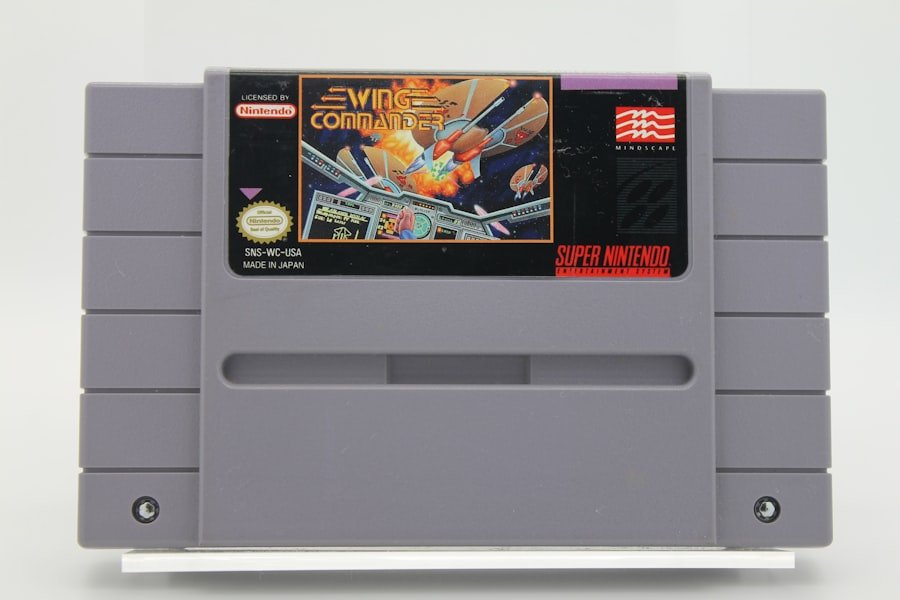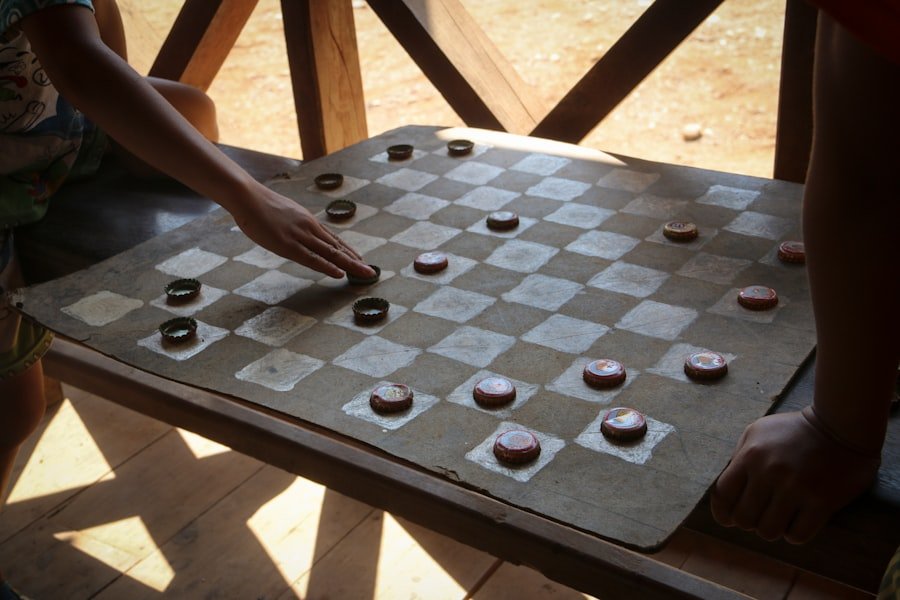Now Reading: Leveling Up Chores: The Influence of Gamification in Sim Games
-
01
Leveling Up Chores: The Influence of Gamification in Sim Games
Leveling Up Chores: The Influence of Gamification in Sim Games

As I delve into the world of simulation games, I find myself captivated by the intricate blend of reality and fantasy that these games offer. Sim games, or simulation games, allow players to create, manage, and experience virtual environments that mimic real-life scenarios. From building cities to managing farms, these games provide a unique platform for creativity and strategic thinking.
One of the most fascinating aspects of sim games is their incorporation of gamification—an approach that applies game-design elements in non-game contexts to enhance user engagement and motivation. This concept has transformed mundane tasks into enjoyable challenges, making it easier for players to immerse themselves in their virtual worlds. Gamification in sim games often manifests through various mechanics such as points, levels, and rewards.
These elements not only make gameplay more engaging but also encourage players to complete tasks that might otherwise feel tedious or uninteresting. By integrating these game-like features into everyday activities, sim games have redefined how I perceive chores and responsibilities. The allure of earning points or unlocking new levels can turn even the most monotonous tasks into exciting challenges, prompting me to explore the potential of gamification in my own life.
Key Takeaways
- Sim games and gamification have revolutionized the way chores are approached and completed.
- The evolution of chores in sim games has made them more engaging and interactive for players.
- Gamification in chores is rooted in psychology, tapping into intrinsic motivation and the desire for achievement.
- Gamification has a significant impact on motivation and engagement, making chores more enjoyable and rewarding.
- Sim games utilize gamification to level up chores by incorporating elements like progression, rewards, and social interaction.
The Evolution of Chores in Sim Games
Reflecting on the evolution of chores within sim games, I realize how far we have come from the early days of gaming. Initially, chores were often simplistic and lacked depth, serving merely as a means to progress in the game. For instance, in early farming simulators, players would plant crops and harvest them without much thought or strategy involved.
However, as technology advanced and game design evolved, so too did the complexity of chores within these virtual environments. Today, sim games offer a rich tapestry of tasks that require planning, resource management, and even social interaction. In contemporary sim games, chores have become multifaceted experiences that contribute significantly to gameplay.
I find myself engaged in a variety of tasks that not only serve a functional purpose but also enhance the overall narrative of the game. For example, in a city-building simulator, managing waste disposal and public services is no longer just a chore; it becomes an integral part of creating a thriving metropolis. This evolution reflects a broader trend in gaming where developers recognize the importance of making chores meaningful and rewarding, ultimately enriching the player’s experience.
The Psychology Behind Gamification in Chores

Understanding the psychology behind gamification in chores reveals why I find these elements so compelling. At its core, gamification taps into fundamental human desires for achievement and recognition. When I complete a task in a sim game and receive immediate feedback—be it through points, badges, or visual rewards—I experience a sense of accomplishment that reinforces my motivation to continue playing.
This phenomenon is rooted in behavioral psychology, where positive reinforcement encourages repeated behaviors. Moreover, gamification leverages the concept of flow—a state of complete immersion and focus that occurs when I am fully engaged in an activity. By presenting challenges that are neither too easy nor too difficult, sim games create an environment where I can lose myself in the gameplay.
The balance between challenge and skill is crucial; when I feel challenged yet capable, I am more likely to invest time and effort into completing chores within the game. This psychological interplay between challenge and reward is what makes gamified chores not just bearable but genuinely enjoyable.
The Impact of Gamification on Motivation and Engagement
The impact of gamification on my motivation and engagement cannot be overstated. In sim games, the introduction of game mechanics transforms my approach to tasks that might otherwise feel like chores. For instance, when I see a progress bar filling up as I complete various activities, I am driven to push through and finish what I started.
This visual representation of progress serves as a powerful motivator, encouraging me to engage with the game on a deeper level. Additionally, gamification fosters a sense of community among players. As I share my achievements with friends or compete for high scores on leaderboards, I feel a connection to others who are experiencing similar challenges.
This social aspect enhances my motivation to participate actively in the game. The desire to showcase my accomplishments or collaborate with others adds another layer of engagement that keeps me coming back for more. Ultimately, gamification transforms chores from solitary tasks into shared experiences that enrich my gaming journey.
How Sim Games Utilize Gamification to Level Up Chores
Sim games have become adept at utilizing gamification techniques to elevate chores from mundane tasks to engaging activities. One way this is achieved is through the incorporation of narrative elements that give context to the chores I undertake. For example, in a life simulation game, tending to a garden may be framed as part of a larger story about building a community or restoring a family legacy.
This narrative context makes each chore feel purposeful and significant. Moreover, sim games often introduce time-limited challenges or events that encourage me to complete specific tasks within a set timeframe. These challenges create a sense of urgency and excitement that motivates me to prioritize my in-game chores over other activities.
By strategically designing these elements, developers ensure that I remain engaged and invested in the gameplay experience. The combination of narrative depth and time-sensitive challenges exemplifies how sim games effectively leverage gamification to enhance my interaction with chores.
The Role of Rewards and Feedback in Gamified Chores

The Power of Rewards
When I complete a task, whether it’s building a new structure or achieving a specific goal, I am often met with immediate rewards that reinforce my efforts. These rewards can take many forms, such as virtual currency, new items, or even aesthetic upgrades for my character or environment. Each reward serves as a tangible acknowledgment of my hard work, motivating me to continue engaging with the game.
The Importance of Feedback
Feedback is equally important, providing me with insights into my performance and progress. In many simulation games, I receive notifications or visual cues that indicate how well I’m doing or how close I am to achieving my goals. This constant stream of feedback keeps me informed and encourages me to refine my strategies as I tackle various chores.
A Positive Feedback Loop
The combination of rewards and feedback creates a positive feedback loop that enhances my overall enjoyment and satisfaction with the game. By acknowledging my efforts and providing valuable insights, simulation games create an engaging and motivating experience that keeps me coming back for more.
The Importance of Progression and Achievement in Gamified Chores
Progression and achievement are central themes in gamified chores that resonate deeply with me as a player. As I navigate through different levels or stages within a sim game, I am constantly striving for advancement—whether it’s unlocking new features or reaching higher levels of expertise. This sense of progression fuels my desire to complete chores efficiently and effectively.
The feeling of achievement is particularly gratifying when I accomplish challenging tasks that require time and effort. Each milestone reached serves as a reminder of my dedication and skill, reinforcing my commitment to the game. In this way, gamified chores become more than just tasks; they transform into stepping stones on my journey toward mastery within the virtual world.
The satisfaction derived from progression not only enhances my gaming experience but also instills a sense of pride in my accomplishments.
Gamification and Social Interaction in Sim Games
Social interaction is another vital aspect of gamification in sim games that enriches my experience as a player. Many modern simulation games incorporate multiplayer features that allow me to connect with friends or other players around the world. This social dimension adds an exciting layer to gamified chores; I can collaborate with others on projects or compete for achievements.
When I engage with friends in completing tasks or sharing resources, it fosters a sense of camaraderie that enhances my enjoyment of the game. Additionally, seeing others succeed motivates me to push myself further—whether it’s striving for higher scores or completing challenges more efficiently. The social interactions facilitated by gamification create a vibrant community where players can celebrate each other’s achievements while also learning from one another’s strategies.
The Potential Downsides of Gamification in Chores
While gamification offers numerous benefits in enhancing engagement with chores, it is essential to acknowledge its potential downsides as well. One concern I have encountered is the risk of over-reliance on rewards for motivation. When I become too focused on earning points or unlocking achievements, I may lose sight of the intrinsic value of completing tasks for their own sake.
This shift in focus can lead to burnout or disillusionment if the rewards become less satisfying over time. Additionally, there is the possibility that gamified chores may inadvertently create stress rather than enjoyment. If I feel pressured to complete tasks within specific timeframes or compete against others constantly, it can detract from the overall experience.
Striking a balance between challenge and enjoyment is crucial; otherwise, gamification may transform what should be fun into an obligation rather than an opportunity for creativity and exploration.
Applying Gamification Principles to Real-Life Chores
Inspired by my experiences with gamified chores in sim games, I’ve begun exploring ways to apply these principles to real-life responsibilities. One effective strategy I’ve adopted is setting specific goals for myself—much like completing quests in a game. By breaking down larger tasks into smaller, manageable objectives, I can create a sense of progression that mirrors what I experience in gaming.
Incorporating rewards into my real-life chores has also proven beneficial. Whether it’s treating myself to a favorite snack after completing household tasks or allowing time for leisure activities after finishing work assignments, these small incentives motivate me to stay on track. Additionally, tracking my progress through checklists or apps provides me with visual feedback similar to what I encounter in sim games—reinforcing my sense of accomplishment as I complete each task.
The Future of Gamification in Sim Games and Chores
Looking ahead, I am excited about the future possibilities for gamification in sim games and its application to real-life chores. As technology continues to advance, developers will likely find innovative ways to enhance player engagement through immersive experiences that blur the lines between gaming and reality even further. Virtual reality (VR) and augmented reality (AR) could revolutionize how we interact with chores by creating fully immersive environments where tasks feel more engaging than ever before.
Moreover, as our understanding of psychology deepens, we may see more tailored approaches to gamification that cater to individual preferences and motivations. Personalized experiences could allow players like me to choose how we engage with chores based on our unique interests and goals—making every task feel relevant and rewarding. In conclusion, sim games have transformed how I perceive chores through the lens of gamification.
By understanding the evolution of these tasks within gaming contexts and exploring their psychological impact on motivation and engagement, I’ve gained valuable insights into how gamified principles can enhance both virtual experiences and real-life responsibilities. As I continue to navigate this dynamic landscape, I’m eager to see how future developments will shape our interactions with both gaming and everyday life.
If you’re interested in exploring how game design can impact player experience, you may also enjoy reading about the timeless mastery of Portal 2’s level design. This article delves into the intricacies of level design in one of the most beloved puzzle games of all time, showcasing how thoughtful and engaging design can enhance gameplay. Just as gamifying chores can make them more enjoyable and rewarding, the level design in Portal 2 demonstrates how game mechanics can shape the player’s experience in a meaningful way.



























